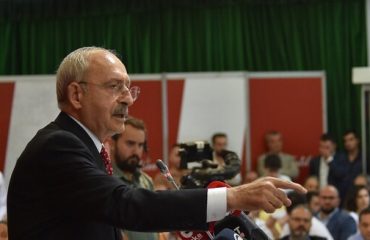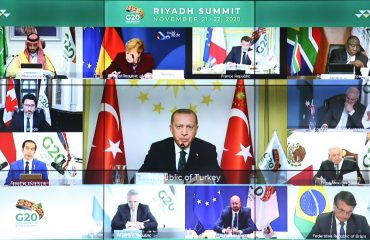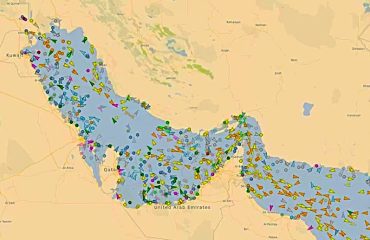One of the few things that Turkey was proud of about its democracy used to be the vote count system in the elections. Usually they were accurately be counted and announced a few hours after the polling stations are closed. Not anymore. The March 31 local elections turned into a disaster because of vote counts and recounts; its April 13 and the results of Istanbul, as Turkey’s biggest city with nearly 16 million population and 11 million voters could not be announced yet.
That is because President Tayyip Erdoğan’s ruling Justice and Development Party (AKP) and his election partner Devlet Bahçeli’s Nationalist Movement Party (MHP) have been putting chain objections to annul the narrow win of Ekrem İmamoğlu, who run on the social democratic opposition Republican People’s Party (CHP) list. Erdoğan has difficulties to acknowledge İmamoğlu’s win, as a politician whose ascend has started 25 years ago when he was elected as mayor of Istanbul. The city was in the hands of mayors coming from Islamic/conservative tradition, like the capital Ankara which is also won by a CHP candidate, Mansur Yavaş. Erdoğan wants the Istanbul election to be repeated; if the Supreme Election Board (YSK) rules foe that the repeated elections will be held on June 2.
The opposition is furious because of that asking whether it will go on like this until the AKP-MHP candidate will win. But there are objections to Erdoğan’s insistence also from within. On April 12, Abdullah Gül, Erdoğan’s predecessor who had founded the AKP together, said in his web site that extended debate on the election results was destroying Turkey’s credibility abroad.
It’s not only the election debate which is destroying Turkey’s credibility. Reuters reported the same day from Washington DC that Turkey’s Finance and Treasury Minister Berat Albayrak, who is also Erdoğan’s son-in-law failed to convince international investors and funds that the economic measures he revealed two days ago were the ones they were looking forward. Albayrak cannot stop the devaluation of Turkish lira against the U.S. dollar, the rise of inflation and unemployment. Erdoğan is strictly against of knocking the door of the IMF for a stand-by agreement and also looking for funds from elsewhere as the government has been revising down its growth targets.
The problems with the U.S. over the purchase of Russian made S-400 missiles is not a factor to help the economic situation. Talking to Russian President Vladimir Putin on April 8, in his first visit abroad after the elections, Erdoğan said it was a “done deal” and the Americans should respect that. In return the U.S. says it will not deliver the new generation F-35 fighter jets to Turkey, despite being a co-producer in order not to risk the NATO air defense; they claim S-400s artificial intelligence could decipher F-35s superior qualities, if they are operated together. The mistrust between the two NATO allies has been growing since Donald Trump endorsed the anti-ISIS partnership with the Syria branch of the outlawed Kurdistan Workers Party (PKK), which is designated as terrorist also by the U.S.; Ankara feels betrayed and left alone, the government spokespersons say.
Erdoğan has still not crossed the point of no return. The acknowledging of the Istanbul results, might scratch Erdoğan’s invincible image in the eyes of his electorate but can give him additional room to maneuver especially in the field of economy and time come up with a new solution which will not make the U.S. and Russia too upset. Otherwise, things are really not going well.


